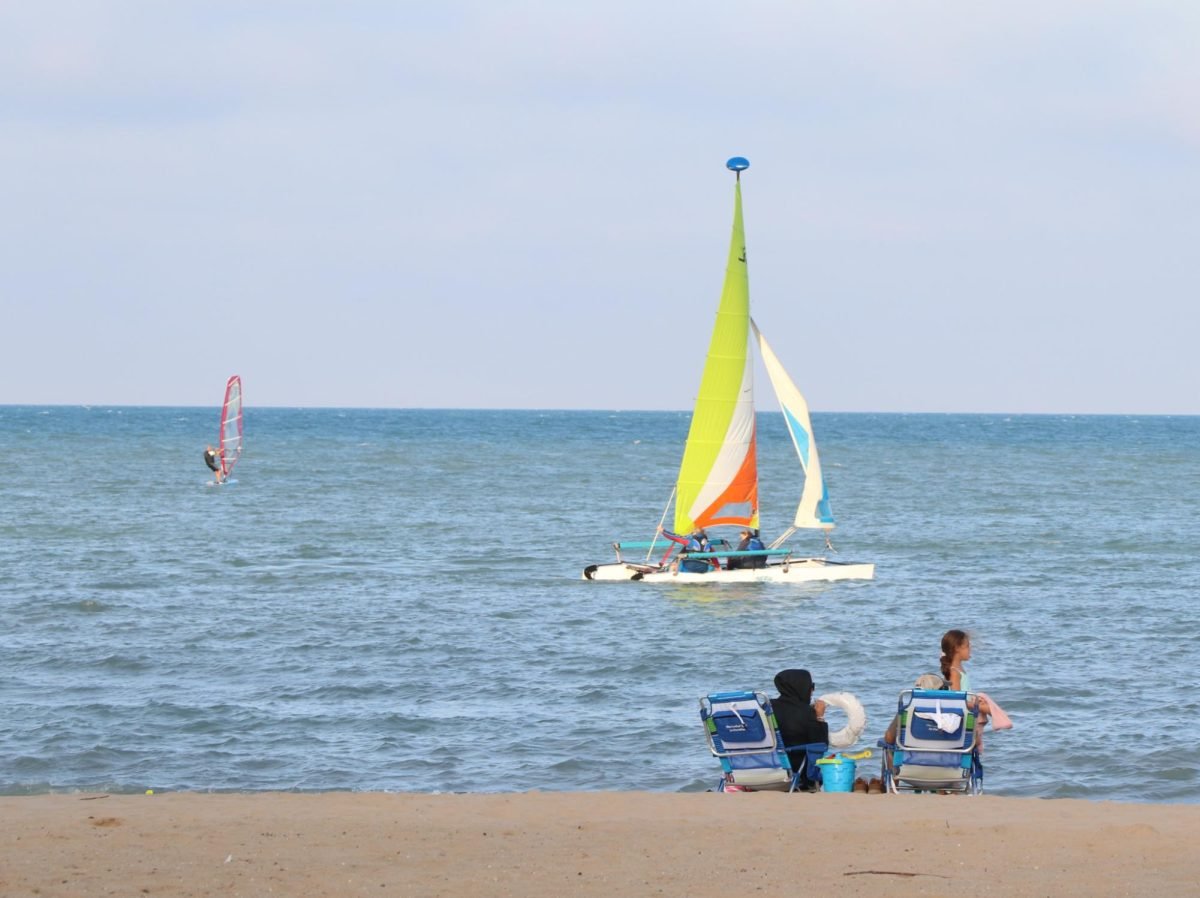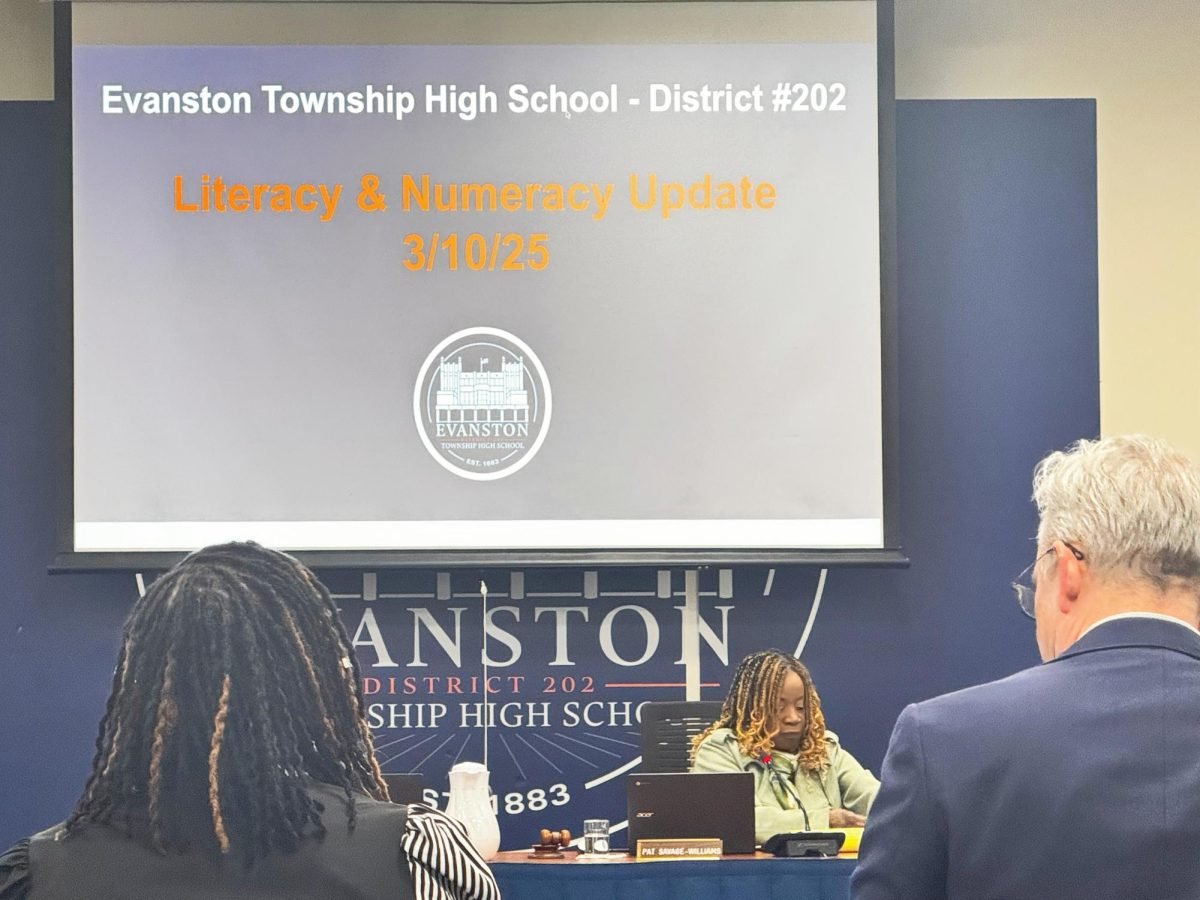When Lisa Degliantoni moved to Evanston with her two children 12 years ago, her family “fell in love with the lakefront.”
After saving money all fall, the family bought a used paddleboard, Degliantoni said at a February Evanston City Council meeting. However, they were on the waiting list for a storage rack space that summer, where they remained for about six years.
Degliantoni told councilmembers her family carried their paddleboards to and from the beach in their vehicle during that span, but she sympathized with other families on the waitlist, especially those without cars.
In January, the Parks and Recreation Department reported it was renting the Dempster Street Launch Facility’s 350 storage spaces for paddleboards, kayaks, canoes and sailboats. There were 669 Evanston residents on the waiting list at the time. In February, City Council approved a recommendation by the parks board to limit storage spaces to one per household.
The new policy follows the city’s trend of increasing equitable accessibility to the lakefront. Tim Carter, lakefront and athletics division manager, described it as “one small piece of a big puzzle.”
Carter said the boat rack change could provide storage to 49 more people on the waitlist.
“It’s a small number,” he said. “But that is 49 more people than I would have had if we just continued with current practices.”
The policy stems from concerns of residents facing prolonged wait times for a storage slip.
Among them is Lora Swanson, 67. After moving from Evanston to Chicago, Swanson moved back to Evanston seven years ago.
“The big attraction is living near the lake — being able to walk to the lake and the parks along the lake and take advantage of all of those resources,” she said.
She soon joined the waiting list for a storage slot for her kayak, despite being told it was unlikely she would ever receive a slot. After four years, she is still on the waiting list.
However, many members of Evanston’s sailing community objected to the policy passed by the council.
Payson Wild, president of the Evanston Sail & Paddle Association, said the organization agrees with most of the board’s proposals, but he described the one-rack-per-household restriction as a “piecemeal solution.”
Wild said the organization would prefer adding more racks to limiting slips per household, but it supports the city’s rental policy with sliding scale payment options, allowing those with lower incomes to access boats without the financial burden.
Ald. Juan Geracaris (9th), who voted in favor of the proposal, noted that the council had seen “a shift” in recent years, referencing Ald. Devon Reid’s (8th) proposal in 2022 to make all beaches free to Evanston residents.
After Reid’s proposal, City Council voted to make beaches free for Evanston residents. Previously, residents paid $8 for a day pass or $18-to-$28 for a season pass. In 2023, the city similarly removed the yearly $75 fee for the Evanston Dog Beach.
“We’re committed to having all our resources available for everyone,” Geracaris said.
At the April 8 Administration and Public Works Committee meeting, members also considered a contract to allow the rental of beach chairs and e-bikes. Again, the conversation addressed equity.
Director of Parks and Recreation Audrey Thompson said the Parks and Recreation board did not want to create a “VIP section” where only people who can pay to rent a beach chair could sit.
To mitigate these concerns, staff recommended that councilmembers approve a contract that would allow renters to place their chairs and umbrellas anywhere on the beach.
Administration and Public Works approved the proposal, but due to lack of a quorum, City Council won’t consider it until its April 29 meeting.
Later this year, a sliding scale policy will also take effect, allowing families with lower incomes to access discounts for recreational programs, including boat rentals and other aquatic activities, Carter said.
“When you start putting all these programs together and all these little pieces, it comes together,” he said. “And that’s how we provide equitable access to the lakefront.”
Carter said that, at times, the beach can feel “private,” and he considers it his responsibility to ensure that everybody has access to the public resource.
“There’s a spiritual connection with the lake, and I think that just fosters a sense of belonging to nature, and our ecosystem and our connection with other humans,” Carter said. “If we were to diminish that, take that away from people, it’d be detrimental to people’s health.”
Email: hannahwebster2027@u.northwestern.edu
Related Stories:
— Evanston beach passes available starting Monday
— How Evanston’s beach tokens create an access barrier to Lake Michigan
— City Council debates extending lakefront parking fees into yearlong program







